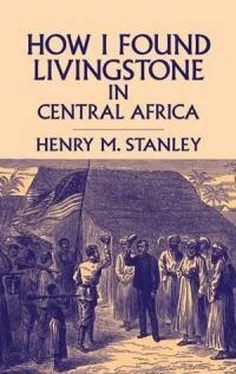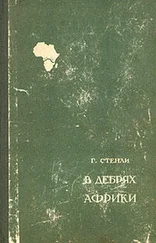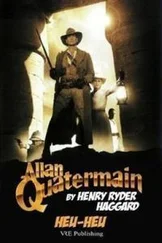Генри Стенли - How I Found Livingstone
Здесь есть возможность читать онлайн «Генри Стенли - How I Found Livingstone» весь текст электронной книги совершенно бесплатно (целиком полную версию без сокращений). В некоторых случаях можно слушать аудио, скачать через торрент в формате fb2 и присутствует краткое содержание. Год выпуска: 1872, Жанр: Биографии и Мемуары, на английском языке. Описание произведения, (предисловие) а так же отзывы посетителей доступны на портале библиотеки ЛибКат.
- Название:How I Found Livingstone
- Автор:
- Жанр:
- Год:1872
- ISBN:нет данных
- Рейтинг книги:5 / 5. Голосов: 1
-
Избранное:Добавить в избранное
- Отзывы:
-
Ваша оценка:
- 100
- 1
- 2
- 3
- 4
- 5
How I Found Livingstone: краткое содержание, описание и аннотация
Предлагаем к чтению аннотацию, описание, краткое содержание или предисловие (зависит от того, что написал сам автор книги «How I Found Livingstone»). Если вы не нашли необходимую информацию о книге — напишите в комментариях, мы постараемся отыскать её.
How I Found Livingstone — читать онлайн бесплатно полную книгу (весь текст) целиком
Ниже представлен текст книги, разбитый по страницам. Система сохранения места последней прочитанной страницы, позволяет с удобством читать онлайн бесплатно книгу «How I Found Livingstone», без необходимости каждый раз заново искать на чём Вы остановились. Поставьте закладку, и сможете в любой момент перейти на страницу, на которой закончили чтение.
Интервал:
Закладка:
The soldiers were set to work to reopen and repack, which latter task is performed in the following manner:-We cut a doti, or four yards of Merikani, ordinarily sold at Zanzibar for $2.75 the piece of thirty yards, and spread out. We take a piece or bolt of good Merikani, and instead of the double fold given it by the Nashua and Salem mills, we fold it into three parts, by which the folds have a breadth of a foot; this piece forms the first layer, and will weigh nine pounds; the second layer consists of six pieces of Kaniki, a blue stuff similar to the blouse stuff of France, and th blue jeans of America, though much lighter; the third layer is formed of the second piece of Merikani, the fourth of six more pieces of Kaniki, the fifth of Merikani, the sixth of Kaniki as before, and the seventh and last of Merikani. We have thus four pieces of Merikani, which weigh 36 lbs., and 18 pieces of Kaniki weighing also 36 lbs., making a total of 72 lbs., or a little more than two frasilahs; the cloth is then folded singly over these layers, each corner tied to another. A bundle of coir-rope is then brought, and two men, provided with a wooden mallet for beating and pressing the bale, proceed to tie it up with as much nicety as sailors serve down rigging.
When complete, a bale is a solid mass three feet and a half long, a foot deep, and a foot wide. Of these bales I had to convey eighty-two to Unyanyembe, forty of which consisted solely of the Merikani and Kaniki. The other forty-two contained the Merikani and coloured cloths, which latter were to serve as honga or tribute cloths, and to engage another set of pagazis from Unyanyembe to Ujiji, and from Ujiji to the regions beyond.
The fifteenth day asked of me by Ali bin Salim for the procuring of the pagazis passed by, and there was not the ghost of a pagazi in my camp. I sent Mabruki the Bullheaded to Ali bin Salim, to convey my salaams and express a hope that he had kept his word. In half an hour's time Mabruki returned with the reply of the Arab, that in a few days he would be able to collect them all; but, added Mabruki, slyly, "Bana, I don't believe him. He said aloud to himself, in my hearing, `Why should I get the Musungu pagazis? Seyd Burghash did not send a letter to me, but to the Jemadar. Why should I trouble myself about him? Let Seyd Burghash write me a letter to that purpose, and I will procure them within two days."'
To my mind this was a time for action: Ali bin Salim should see that it was ill trifling with a white man in earnest to start. I rode down to his house to ask him what he meant.
His reply was, Mabruki had told a lie as black as his face. He had never said anything approaching to such a thing. He was willing to become my slave-to become a pagazi himself. But here I stopped the voluble Ali, and informed him that I could not think of employing him in the capacity of a pagazi, neither could I find it in my heart to trouble Seyd Burghash to write a direct letter to him, or to require of a man who had deceived me once, as Ali bin Salim had, any service of any nature whatsoever. It would be better, therefore, if Ali bin Salim would stay away from my camp, and not enter it either in person or by proxy.
I had lost fifteen days, for Jemadar Sadur, at Kaole, had never stirred from his fortified house in that village in my service, save to pay a visit, after the receipt of the Sultan's letter. Naranji, custom-house agent at Kaoie, solely under the thumb of the great Ludha Damji, had not responded to Ludha's worded request that he would procure pagazis, except with winks, nods, and promises, and it is but just stated how I fared at the hands of Ali bin Salim. In this extremity I remembered the promise made to me by the great merchant of Zanzibar-Tarya Topan-a Mohammedan Hindi-that he would furnish me with a letter to a young man named Soor Hadji Palloo, who was said to be the best man in Bagamoyo to procure a supply of pagazis.
I despatched my Arab interpreter by a dhow to Zanzibar, with a very earnest request to Capt. Webb that he would procure from Tarya Topan the introductory letter so long delayed. It was the last card in my hand.
On the third day the Arab returned, bringing with him not only the letter to Soor Hadji Palloo, but an abundance of good things from the ever-hospitable house of Mr. Webb. In a very short time after the receipt of his letter, the eminent young man Soor Hadji Palloo came to visit me, and informed me he had been requested by Tarya Topan to hire for me one hundred and forty pagazis to Unyanyembe in the shortest time possible. This he said would be very expensive, for there were scores of Arabs and Wasawabili merchants on the look out for every caravan that came in from the interior, and they paid 20 doti, or 80 yards of cloth, to each pagazi. Not willing or able to pay more, many of these merchants had been waiting as long as six months before they could get their quota. "If you," continued he, "desire to depart quickly, you must pay from 25 to 40 doti, and I can send you off before one month is ended. "In reply, I said, "Here are my cloths for pagazis to the amount of $1,750, or 3,500 doti, sufficient to give one hundred and forty men 25 doti each. The most I am willing to pay is 25 doti: send one hundred and forty pagazis to Unyanyembe with my cloth and wire, and I will make your heart glad with the richest present you have ever received." With a refreshing naivete, the "young man" said he did not want any present, he would get me my quota of pagazis, and then I could tell the "Wasungu" what a good "young man" he was, and consequently the benefit he would receive would be an increase of business. He closed his reply with the astounding remark that he had ten pagazis at his house already, and if I would be good enough to have four bales of cloth, two bags of beads, and twenty coils of wire carried to his house, the pagazis could leave Bagamoyo the next day, under charge of three soldiers.
"For, he remarked, "it is much better and cheaper to send many small caravans than one large one. Large caravans invite attack, or are delayed by avaricious chiefs upon the most trivial pretexts, while small ones pass by without notice."
The bales and the beads were duly carried to Soor Hadji Palloo's house, and the day passed with me in mentally congratulating myself upon my good fortune, in complimenting the young Hindi's talents for business, the greatness and influence of Tarya Topan, and the goodness of Mr. Webb in thus hastening my departure from Bagamoyo. I mentally vowed a handsome present, and a great puff in my book, to Soor Hadji Palloo, and it was with a glad heart that I prepared these soldiers for their march to Unyayembe.
The task of preparing the first caravan for the Unyanyembe road informed me upon several things that have escaped the notice of my predecessors in East Africa, a timely knowledge of which would have been of infinite service to me at Zanzibar, in the purchase and selection of sufficient and proper cloth.
The setting out of the first caravan enlightened me also on the subject of honga, or tribute. Tribute had to be packed by itself, all of choice cloth; for the chiefs, besides being avaricious, are also very fastidious. They will not accept the flimsy cloth of the pagazi, but a royal and exceedingly high-priced dabwani, Ismahili, Rehani, or a Sohari, or dotis of crimson broad cloth. The tribute for the first caravan cost $25. Having more than one hundred and forty pagazis to despatch, this tribute money would finally amount to $330 in gold, with a minimum of 25c. on each dollar. Ponder on this, O traveller! I lay bare these facts for your special instruction.
But before my first caravan was destined to part company with me, Soor Hadji Palloo-worthy young man-and I were to come to a definite understanding about money matters. The morning appointed for departure Soor Hadji Palloo came to my hut and presented his bill, with all the gravity of innocence, for supplying the pagazis with twenty-five doti each as their hire to Unyanyembe, begging immediate payment in money. Words fail to express the astonishment I naturally felt, that this sharp-looking young man should so soon have forgotten the verbal contract entered into between him and myself the morning previous, which was to the effect that out of the three thousand doti stored in my tent, and bought expressly for pagazi hire, each and every man hired for me as carriers from Bagamoyo to Unyanyembe, should be paid out of the store there in my tent. when I asked if he remembered the contract, he replied in the affirmative: his reasons for breaking it so soon were, that he wished to sell his cloths, not mine, and for his cloths he should want money, not an exchange. But I gave him to comprehend that as he was procuring pagazis for me, he was to pay my pagazis with my cloths; that all the money I expected to pay him, should be just such a sum I thought adequate for his trouble as my agent, and that only on those terms should he act for me in this or any other matter, and that the "Musungu" was not accustomed to eat his words.
Читать дальшеИнтервал:
Закладка:
Похожие книги на «How I Found Livingstone»
Представляем Вашему вниманию похожие книги на «How I Found Livingstone» списком для выбора. Мы отобрали схожую по названию и смыслу литературу в надежде предоставить читателям больше вариантов отыскать новые, интересные, ещё непрочитанные произведения.
Обсуждение, отзывы о книге «How I Found Livingstone» и просто собственные мнения читателей. Оставьте ваши комментарии, напишите, что Вы думаете о произведении, его смысле или главных героях. Укажите что конкретно понравилось, а что нет, и почему Вы так считаете.












